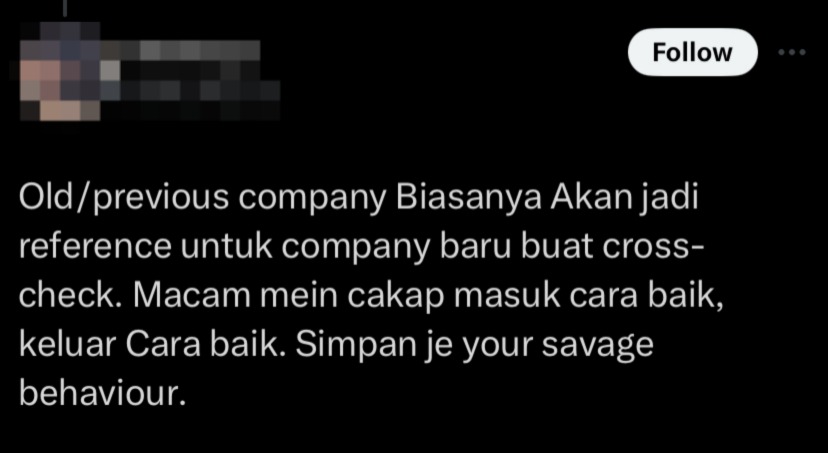Every job comes with its own set of relationships, and eventually, every employee faces the inevitable farewell.
Whether moving on to new opportunities or simply seeking a change, leaving a company is a significant transition. But how we handle this departure can speak volumes about our professionalism and character.
M’sian sends vulgar resignation letter
Recently, a post on Platform X caught the attention of netizens and sparked a heated discussion.

The post featured an individual who shared their plans to send a less-than-friendly farewell message to their coworkers upon resigning.
The message in question was to include the phrase “adios b*tches” and leave the group chat, which also included high-ranking members from headquarters.
The term “b*tch,” a derogatory insult typically aimed at women, and the casual “adios,” a Spanish word for goodbye, were seen as inappropriate ways to exit a company.

The individual’s question to the public was whether management could take action against them even after they had resigned.
This isn’t savage; it makes you look foolish and unprofessional.
The reaction from netizens was swift and critical, highlighting the importance of maintaining professionalism, even in the face of personal frustration.
‘Many netizens found the planned message to be immature and unprofessional’

One commenter advised: “Don’t bother. No matter how much you dislike your job, keep it professional. You never know what the future holds. The new company might hire someone from your old company.
Additionally, bosses often know each other; don’t tarnish your own reputation. Leave on good terms and best of luck in your new role.”

Another comment highlighted: “Your previous company will likely serve as a reference for your new job. Keep your negative vibes in check and maintain a professional demeanor. Don’t let a grumpy goodbye be the ‘last straw.’”

A third commenter shared:
- “This isn’t savage; it makes you look foolish and unprofessional.”
- “View your former employer as a connection, not an enemy.”
- “Preserve your reputation even when leaving. Reputation is more important than revenge.”



